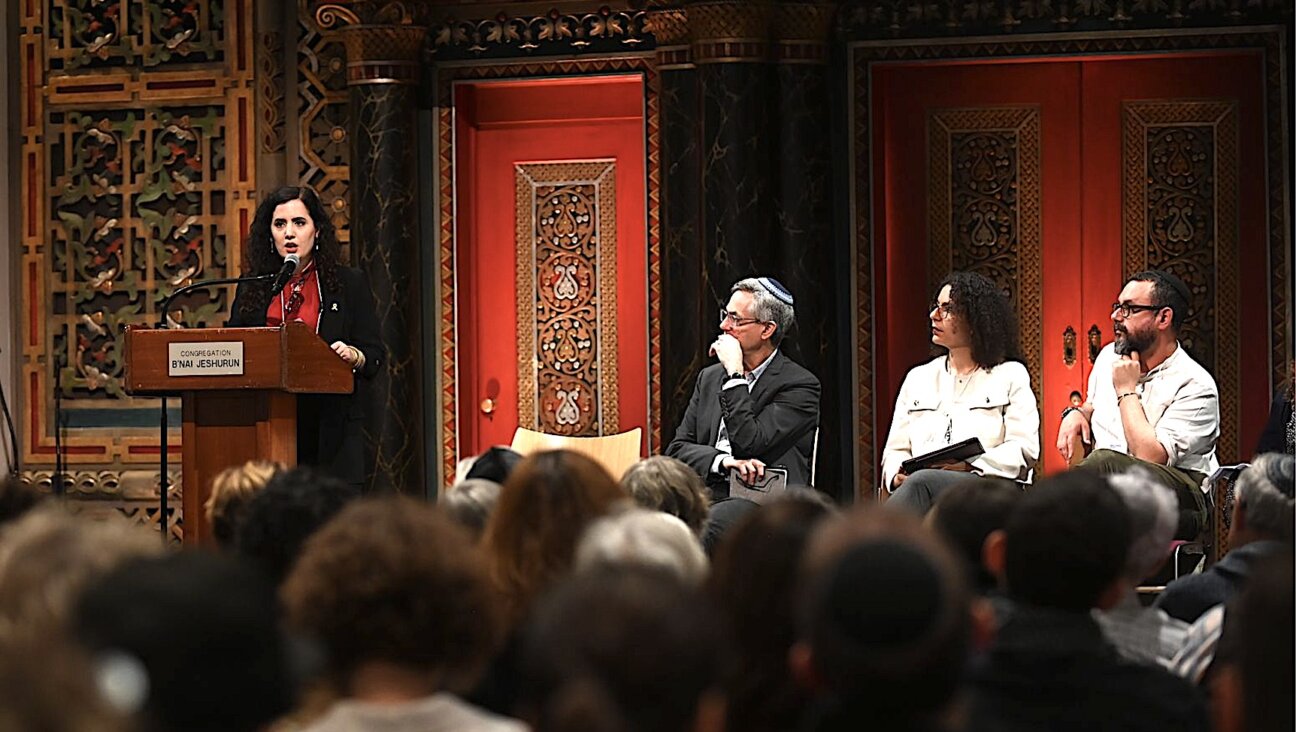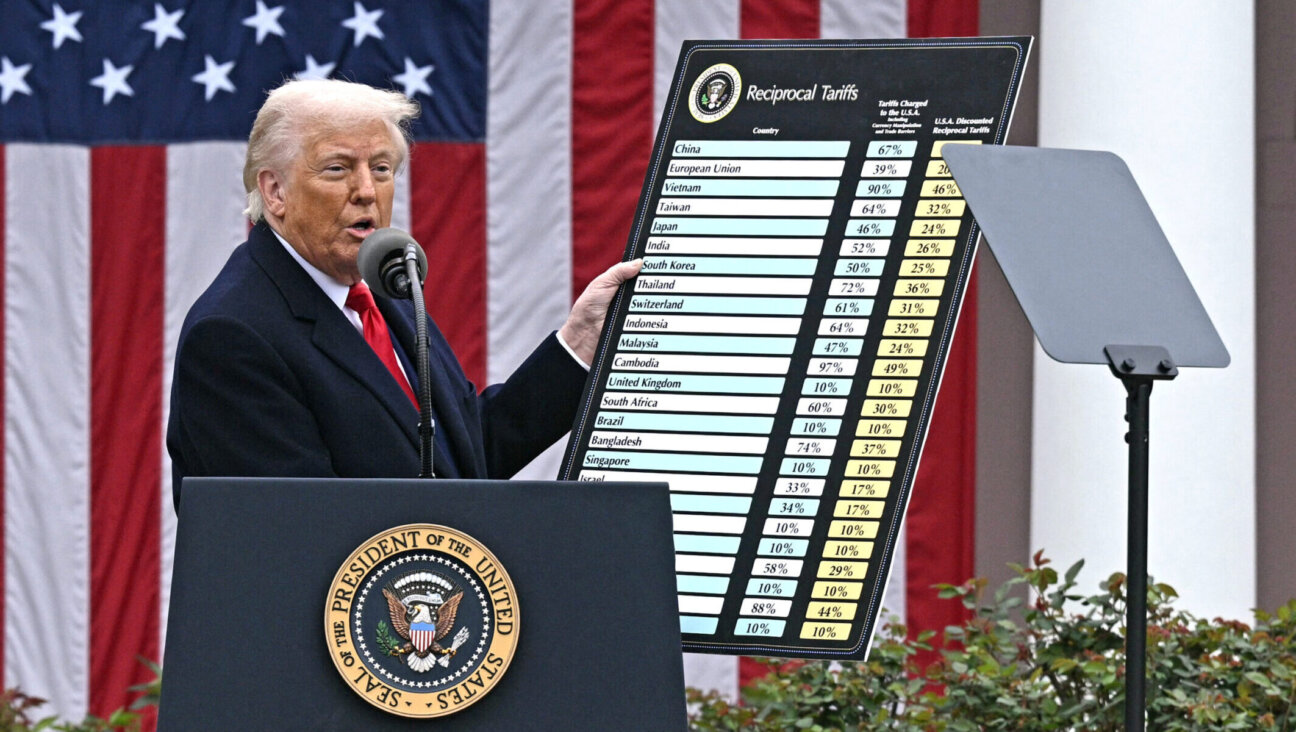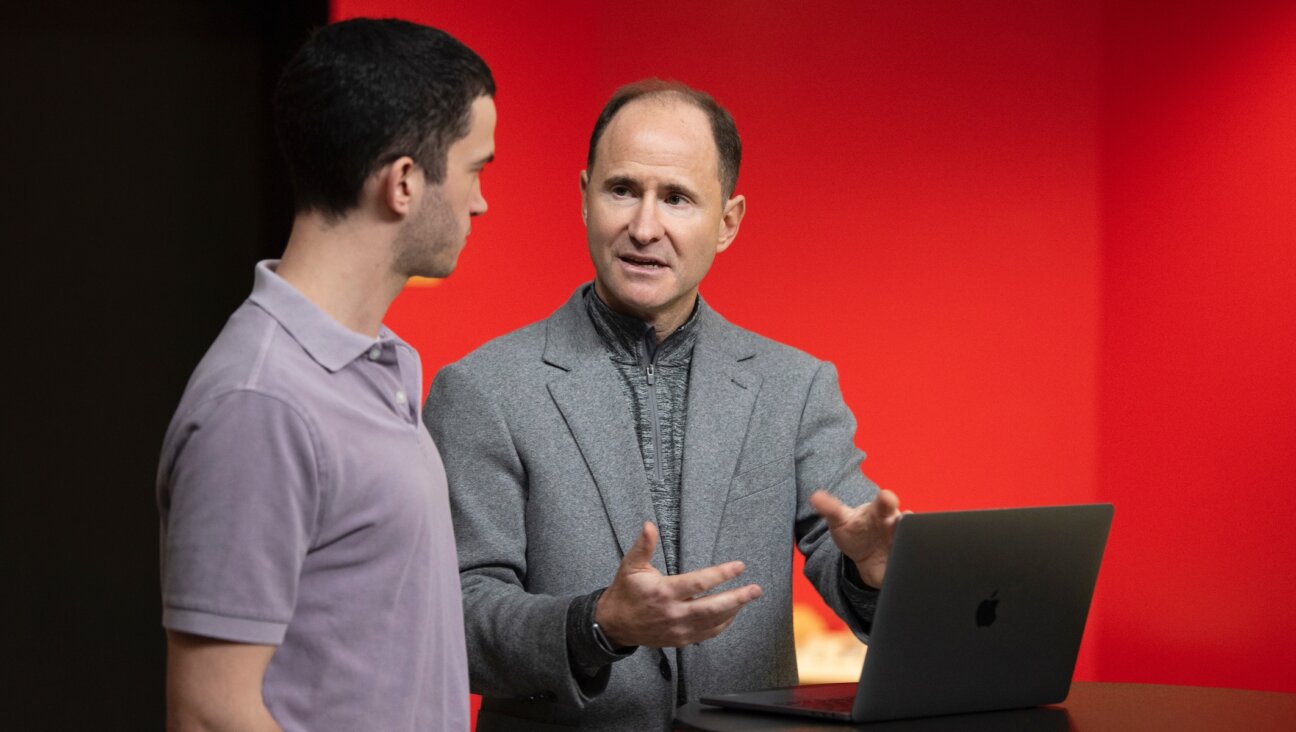Häagen-Dazs Creator Ruth Mattus, 90
Rose Mattus, a longtime Jewish philanthropist and one of the creators of Häagen-Dazs ice cream, died November 28 in Westwood, N.J., at the age of 90.
Mattus grew up in Poland and moved to Brooklyn with her family in 1921. She married a distant cousin, Reuben, in 1936, and together they started making ice cream, which they sold first in the Bronx and later throughout New York City. In the early 1960s, the couple created the foreign-sounding name Häagen-Dazs, and Mattus took to offering free samples to grocery stores to boost sales. She also served as comptroller for two decades until 1983, when they sold the company — by then an internationally known brand — to Pillsbury for $70 million. The Mattuses went on to create a new brand: Mattus, which specialized in low-fat ice cream.
An ardent Zionist, Mattus spent the last 23 years of her life active in Jewish philanthropy, often for right-wing causes. She and her husband funded yeshivas, hospitals and religious organizations in Israel and in the West Bank, including the Chai Lifeline, a not-for-profit organization that assists children living with serious illnesses; the Jerusalem Reclamation Project, a right-wing Orthodox initiative to bring tens of millions of so-called “lost Jews” from Asia and Europe to the West Bank, and the Hebron Fund. She also sat on the national board of the Zionist Organization of America for the past 12 years.
“Her two great loves both began with the letter ‘I’: ice cream and Israel,” said Morton Klein, president of the ZOA. “She was a very generous contributor to Jews living in Judea and Samaria. No one surpassed her commitment to the holy Jewish land of Israel.”
Mattus is survived by two brothers, two daughters, five grandchildren and 10 great-grandchildren. Her husband died in 1994.
“My mother was very passionately involved with the State of Israel,” her daughter Doris Hurley told the Forward. “She spent so much of her time committed to philanthropic efforts there and visited Israel many times. In fact, she could get any of the prime ministers on the phone when she needed to. She was afraid of nothing. On one of her visits a few years ago, a bus blew up 200 yards from where she was standing, but she went back. She told us, ‘Israel is the place I feel safest.’”
The Forward is free to read, but it isn’t free to produce

I hope you appreciated this article. Before you go, I’d like to ask you to please support the Forward.
At a time when other newsrooms are closing or cutting back, the Forward has removed its paywall and invested additional resources to report on the ground from Israel and around the U.S. on the impact of the war, rising antisemitism and polarized discourse.
Readers like you make it all possible. We’ve started our Passover Fundraising Drive, and we need 1,800 readers like you to step up to support the Forward by April 21. Members of the Forward board are even matching the first 1,000 gifts, up to $70,000.
This is a great time to support independent Jewish journalism, because every dollar goes twice as far.
— Rachel Fishman Feddersen, Publisher and CEO
2X match on all Passover gifts!
Most Popular
- 1

News A Jewish Republican and Muslim Democrat are suddenly in a tight race for a special seat in Congress
- 2

Fast Forward The NCAA men’s Final Four has 3 Jewish coaches
- 3

Film & TV What Gal Gadot has said about the Israeli-Palestinian conflict
- 4

Fast Forward Cory Booker proclaims, ‘Hineni’ — I am here — 19 hours into anti-Trump Senate speech
In Case You Missed It
-

Fast Forward As Netanyahu arrives in Budapest, Hungary announces exit from International Criminal Court
-

Yiddish הונדערטער פֿרומע ייִדן לאַנצירן לינק־געשטימטע גרופּע אין מאַנהעטןHundreds of observant Jews launch left-wing group in Manhattan
הרבֿ יוסף בלאַו האָט בײַ דער קאָנפֿערענץ באַדויערט וואָס דער רעליגיעזער ציוניזם אין ישׂראל איז „פֿאַרכאַפּט געוואָרן“ פֿון די רעכטע.
-

Fast Forward Trump’s ‘Liberation Day’ includes 17% tariffs on Israeli imports, even as Israel cancels tariffs on US goods
-

Fast Forward Hillel CEO says he shares ‘concerns’ over campus deportations, calls for due process
-
Shop the Forward Store
100% of profits support our journalism
Republish This Story
Please read before republishing
We’re happy to make this story available to republish for free, unless it originated with JTA, Haaretz or another publication (as indicated on the article) and as long as you follow our guidelines.
You must comply with the following:
- Credit the Forward
- Retain our pixel
- Preserve our canonical link in Google search
- Add a noindex tag in Google search
See our full guidelines for more information, and this guide for detail about canonical URLs.
To republish, copy the HTML by clicking on the yellow button to the right; it includes our tracking pixel, all paragraph styles and hyperlinks, the author byline and credit to the Forward. It does not include images; to avoid copyright violations, you must add them manually, following our guidelines. Please email us at [email protected], subject line “republish,” with any questions or to let us know what stories you’re picking up.















